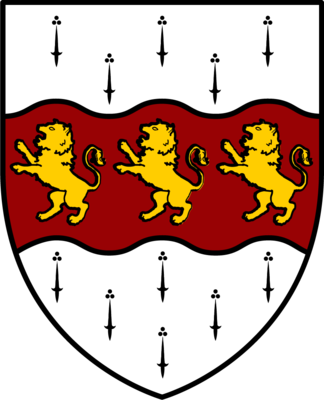Sustainability at Mather: A Short History
* Horticulture - from Mather's beautiful courtyard to to the atrium in the Faculty Deans' residence, Mather knows that plants don't just clean the air. Starting in 2018, Mather has committed to increasing the amount of green both inside and outside the House through the addition of:
Inside: 2 rubber trees, 5 giant yucca canes, 1 variegated ficus (Monique Gold), 1 ficus Audrey Standard, 2 birds of paradise, 2 bamboo (Chamaedorea Seifrizi), 1 Madagascar Jasmine (Stephanotis Floribunda), 1 Bougainvillea Rasperry Ice.
Outside: 4 bamboo planters, 2 wisteria (1 Violacea Plena #15 and 1 Macrobotrys #15), 2 American Sweetgum 'Slender Silhouette', 2 Weeping White Spruce, and thousands of bulbs (tulips, crocus, daffodils).
* Mather HoCo was the FIRST HoCo ever to win the Resource Efficiency Program (REP) Green HoCo award!
* Mather Dunster Kitchen: LEED Certified Silver. The Mather Dunster kitchen is the first kitchen in the world to be LEED certified by the U.S. Green Building Council.
Sustainable features of the kitchen include:
- a compost pulper
- dual flush toilets
- efficient dishwasher
- energy-saving lights (use 35% less energy than code)
- donation of old equipment
- wind power purchases
- environmentally friendly carpets, adhesives, and paints
Eco-Projects
Eco-Projects are projects that are initiated by individuals or Green Cup teams in the House to lessen its impact on the environment. Below are eco-projects that Mather residents have done.
- Green Happy Hour (St. Patrick's Day)
- Sustainable Mather Website
- Poster Reuse for IM posters
- Mather Library Green Team (voted one of top 3 Harvard Eco-Projects!)
- Reuse of wood from Mather Lather
- Dishware Return Drive
- Composting at the Masters’ Open House
- CFL Swap
- Field Day (HoCo)
- Greening of Harvard-Yale Tailgate(HoCo)
- Green Capital Improvements (HoCo)
- Paperless Formal Invitations(HoCo)
- Can I Recycle That? Recycling Labels
- An Inconvenient Truth Showing
- Dining Hall Paper Product Recovery for Compost
- Door Drop Paper Reduction
- Mather Beer Tower for Harvard-Yale Game (HoCo)
- Mug Rack in the Dining Hall
- The Mather Garden (bulb planting)
- Used Furniture Sales & Furniture Golf
Recycling
Recycling bins are located throughout Mather including common areas, the mail room, and in dorm rooms. Note that Harvard has SingleStream recycling- cans & bottles & paper are all mixed together.
The following materials can be recycled at Harvard:
- Paper (including colored paper, envelopes with windows, staples, catalogs, magazines, juice and milk paper cartons, paperboard like cereal boxes, etc.
- Cardboard (please break down first)
- Rigid plastics #1-7 (no plastic bags or styrofoam) Remember- Solo cups from parties can be recycled!
- Glass
- Metal (including aluminum cans, tin cans, and aluminum foil)
- Batteries-any type including alakaline, rechargeables, phone, and computer batteries (put in bin in Miguel's office or in Tower basement)
Please do not put anything else in the bins as this will contaminate the recycling. For more information on Harvard Recycling. Check our Harvard's recycling FAQs and the list of what can be recycled.
Need a bin? Contact your Mather Rep (above) or check the Tower basement for extras.
Heating
Mather House is heated by circulating hot water. To prevent rooms from overheating each radiator has an automatic control valve that may be adjusted by the occupant. This valve is meant to give you control of the heat level in your room and to prevent the wasting of energy.
INSTRUCTIONS FOR OPERATING RADIATOR CONTROL VALVES:
- Locate the gray or white handle dial protruding from the valve. The valve is attached to the radiator and the handle is mounted on the radiator board/cover.
- Select the setting between 1 (lowest temperature) and 5 (highest temperature) on the dial at which you are most comfortable. Forcing the valve beyond the maximum setting will not produce more heat but may damage the valve.
TO ENSURE YOUR ROOM IS COMFORTABLE AND NOT WASTING ENERGY:
- Please check that all windows and storm windows are closed tightly. Windows should not be open during the heating season. Lock windows to minimize drafts.
- Remove furniture, clothes and books from around radiators to allow air to circulate.
- Please contact the Building Manager if your room is overheating and you feel it is wasting energy or if your room feels too cold.
- Set the gauge on the snowflake symbol when you know your room will be unoccupied for 2 or more days.
- Take advantage of curtains, drapes and blinds to keep the cold out and heat in by closing them at night. THANK YOU FOR YOUR HELP IN REDUCING ENERGY COSTS.
Sustainability Resources at Harvard
Learn more about what Harvard is doing at the Office of Sustainability or read through Harvard's Housing Sustainability Guide.
Learn more about Harvard REP events and seasonal tips: https://sustainable.harvard.edu/organization/rep-resource-efficiency-program/
Not sure if you should recycle or trash an item? Look it up with these fun, interactive modules: Harvard Waste Wizard or Zero Waste Cambridge
Energy@fas: See lights left on, in a building that’s freezing in the summer, or drafty in the winter? Let the FAS Green Program know by emailing energy@fas.harvard.edu

